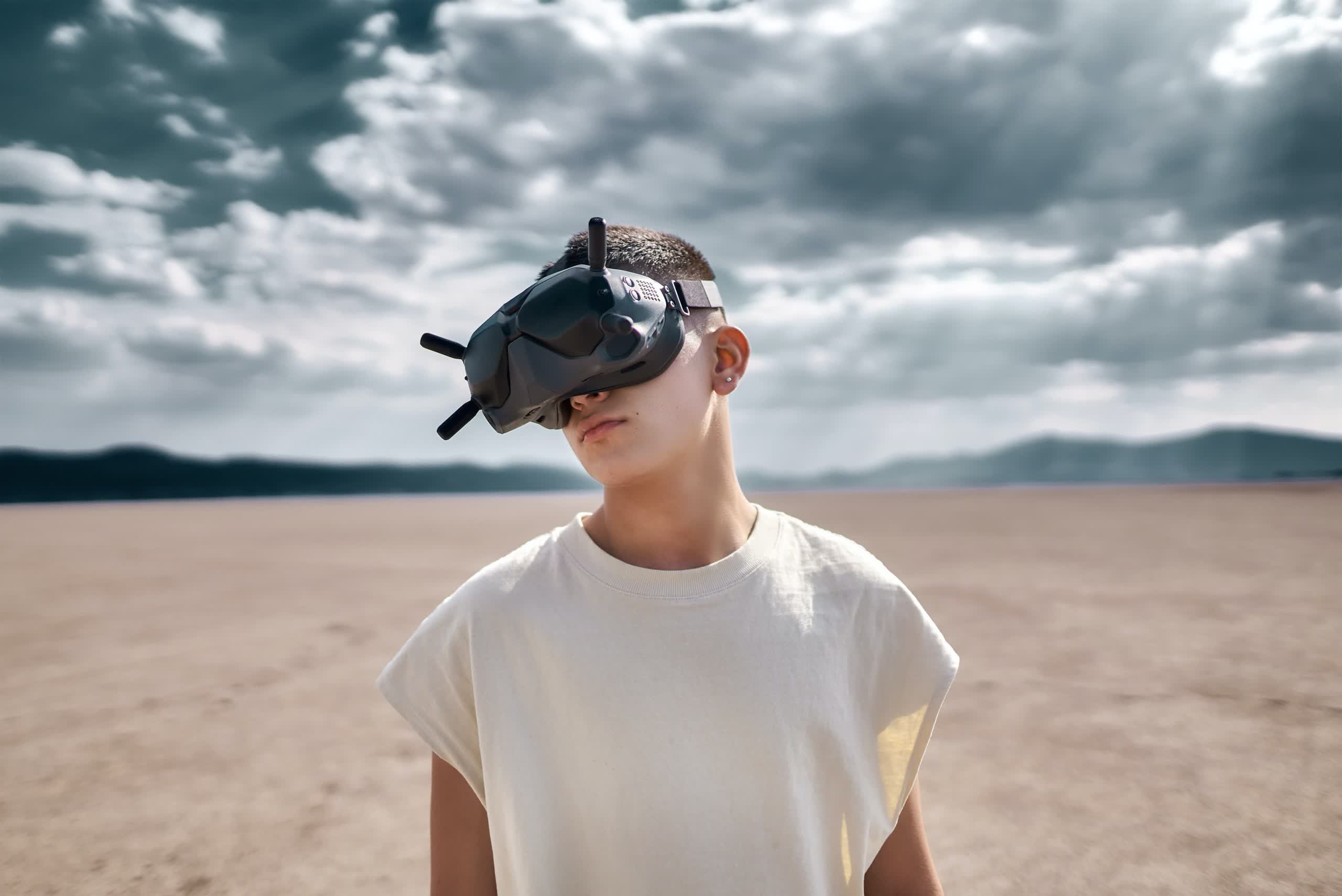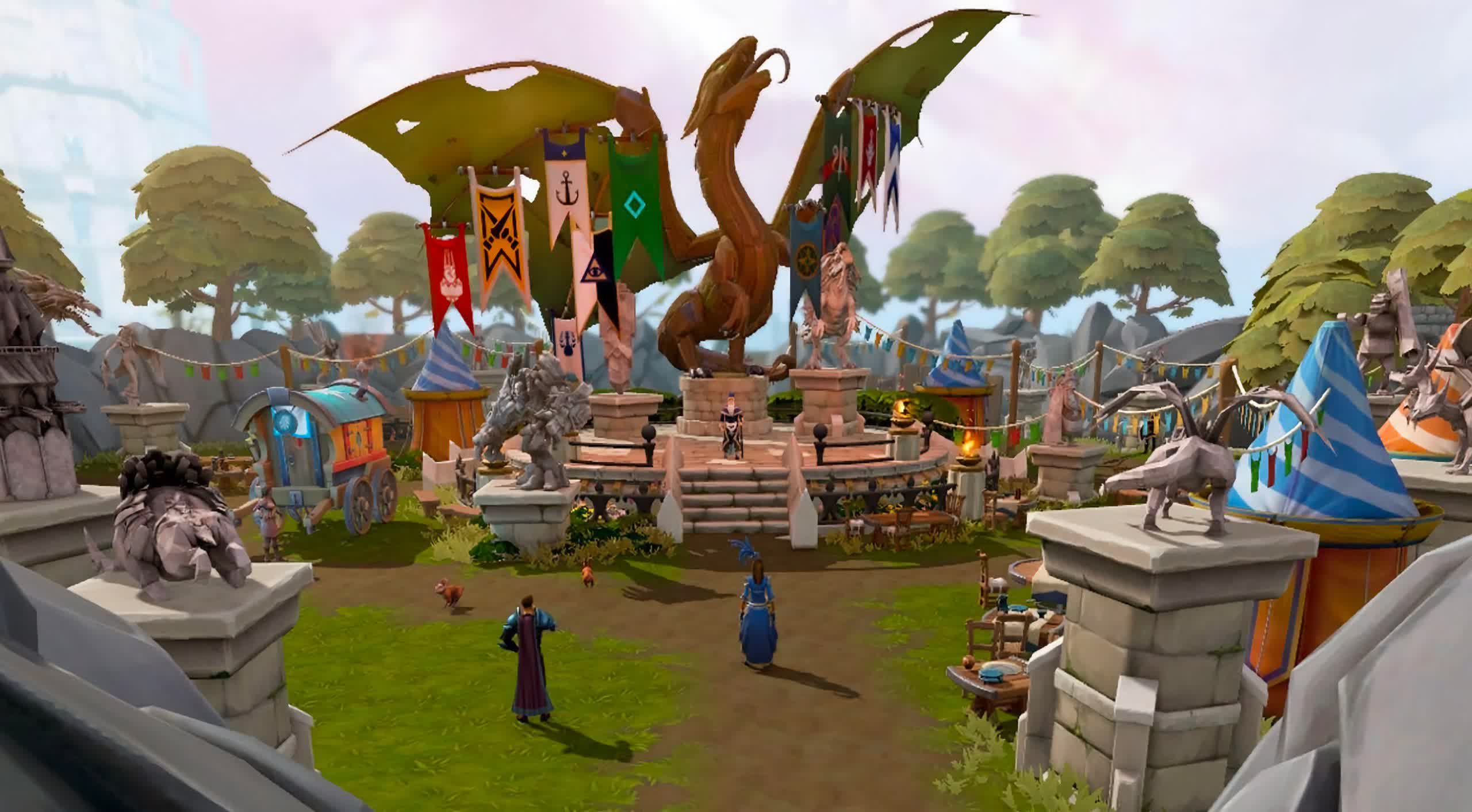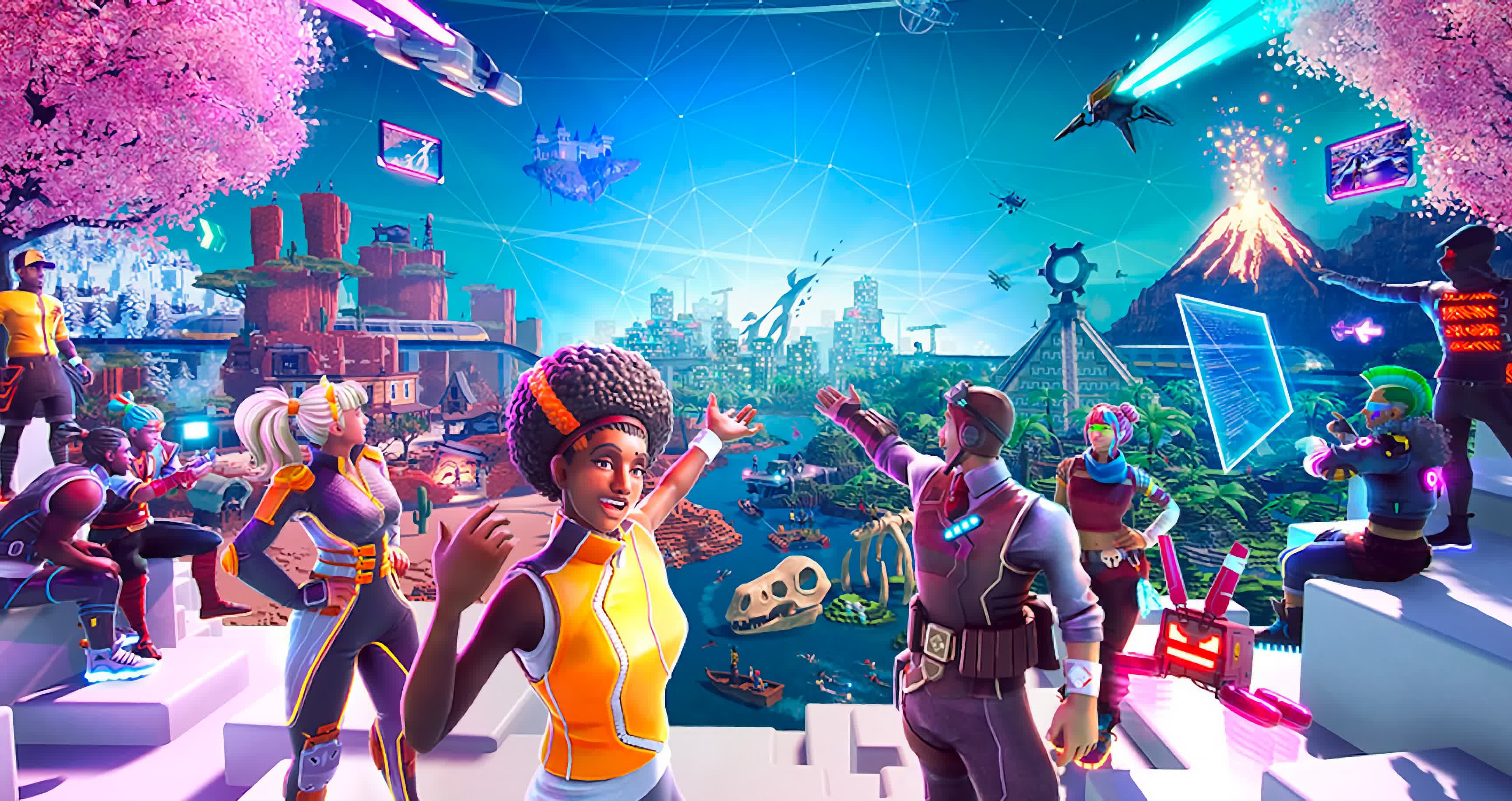The Metaverse. Some are calling it the next evolution of the Internet, others say it’s already existed for years. One way or another, it’s the focus of some of the most influential media companies in the world, and you should look into it, too.
I’ve always been fascinated with the Metaverse, long before I even knew there was a name tied to the idea. Going all the way back to when I was a young boy. Like most other little boys, I was dreaming of being a superhero, a knight, a swashbuckler, and on the most whimsical days, some conglomeration of those and many more action-y archetypes rolled into one as I adventured through various worlds built in the collective fantasy of my friends and I.
Illustration by Mo
As time went on, I relegated those realm-treading ideas to the section at the back of my mind labeled “fanciful nonsense,” right next to light-sabers and world peace-thinking that videogames and books would be the closest of proxy for exploring other worlds that I’d have in my lifetime.
That course of thinking was changed in an instant one Saturday afternoon on a visit to a friend’s house. I had popped in unannounced to find many of my peers lumped into a crowd, trilling with unabashed awe. When they had enough sense about them collectively to notice the new arrival, I was ushered to the center of the crowd, and strapped into a bulky headset, the Oculus Rift, playing a game called Robo Recall – a simple affair where you shoot at errant robots rampaging through a futuristic city.
Totally enveloped, with a level of immersion I had never approached, even with the most thrilling of media I’d ever consumed, I was gleefully tearing through these hordes of robots.

I wasn’t pointing a crosshair at these robots and clicking like had always been the case before. Instead, I was looking down the sights of the wacky, futuristic weapons by moving my hand to eye level, pinching my real fingers together to catch a bullet, and slinging my wrist forward to throw things.
It was mere seconds before the thoughts of the bulky headgear and alien controllers were completely gone, and I was completely within this game. Alas, the game came not without danger- I whipped to my right to shoot one of those rampaging robots and felt a sharp crack in the back of my hand, and pulling the headset off, I realized I had clubbed one of my boys with the Rift’s controller.
As he picked himself up from the floor I put myself into time-out for being a danger to myself and others, and as I sat off to the side watching as others took their own turns shooting robots I was totally elated. This thing I was seeing — I knew it was monumentous. Not just because this technology on its own was revolutionary and kind of amazing to behold, but because it was a tiny baby-step between the real world and a fantastical and truly infinite one, appealing to some latent hope deep within me. Something that seemed so impossibly far away, was emerging into reality, and having the incredible courtesy not only to happen during my lifetime, but in front of my very eyes.
“A disclaimer”
Before we delve into the vast and complex issue of trying to divine the future of technology – a task in which many more qualified before me have failed miserably – or become exalted in their unparalleled facticity, I would like to include something akin to a disclaimer.
Takes on the internet, smartphones, television, and basically every other innovation of technology at the time of their conception and adoption have a tendency to skew outwards to those two extremes. We highlight and make prolific use of the most egregious deniers using the clarity of hindsight to make those speakers of antiquity into a mockery, or highlight people who were ahead of their time while ignoring the middling opinions that make up the contemporary thought.

Image credit: Jezael Melgoza
While I sing the praises of the amazing technological advancements, I also hope to forewarn that there are terrible dangers afoot. The more we become lost in the coming wonderland, the more the masters of that domain will have the ability to influence our lives, ideas, and perception… an opportunity we know they will seize if given.
I believe that the Metaverse is an inevitability, save for a catastrophe of infrastructure or a foundational shift in human behavior. As is the order of our society, what once was a whimsical idea will be breathed into reality moving forward, even if it manifests as malignant and damnably corrupted.
As I see it, humanity approaches the Metaverse, treading a narrow and harrowing path. Waiting at the end, the ultimate reward for going where we have never dared, nor had the ability to go before, an Eden where humanity’s technological staking will allow us to meaningfully transcend many of the boundaries of our primary physical reality and largely eliminate the logistical hurdles of space and distance from a myriad of activities.
The danger lies on either side of that path, pulling at us with an avaricious gravity towards gray quagmires of corporate control. Places where many of humanity’s base freedoms are an illusion. The barons of those desolate kingdoms having complete control over what may exist within this new reality that we adopt.
As we explore the idea of the Metaverse here today, I plead with you to consider that the technology that will soon be at our disposal does not have the innate quality of being a supreme good, nor an ultimate, undoing evil. It is something that will be built and guided by the actions and ideals of many people, and has the capability to end up in either of these final destinations, and so many in between.
Where did the word “Metaverse” come from?
The prefix “Meta-” means beyond, and “-verse” refers to the Universe. Combine them to get the rather fitting term “Metaverse,” meaning “beyond the Universe.” All things considered, Metaverse feels an appropriately extravagant word for the ideas it represents.
This shiny new buzzword we’re throwing around isn’t actually so new. It originated in the 1992 Sci-fi novel, Snow Crash. I feel it is of note that this is the same place that is thought to have popularized the term “avatar” when referring to a digital representation of someone, so just with that accolade you can tell Snow Crash had its effect on the tech decades beyond when it was written.

While that’s all good and dandy, choosing to use this term feels like a terrible, looming omen when you look at the source material. Snow Crash presents a dystopian, fractured state in a year very near to our own. In this shattered vision of America, what are essentially corporate oligarchs have all of the power in the presented society, and aim to employ literal memetic viruses that reprogram the human mind.
Facebook, a company constantly under fire for misuse of information and largely accused of shady and unscrupulous practices, taking up its new mantle of “Meta,” and pledging to build the Metaverse seems to be about as on the nose as falling face first into asphalt. The cynic in me almost sees this as a brazen admission. Like, they’re coming right out and saying, “Yup, we’re done hiding it. We are untenably unconcerned with the well being of you lowly peasants. Our hegemony over information will be brutal and unceasing.”
So what is it? The Metaverse in the real world
“Well,” you might be asking, “now that you’ve scared me with your grossly exaggerated pessimism, what actually is this Metaverse thing you’re talking about?” And I’d say that it’s rather difficult to pin down.
What might have someone said if you asked them what an automobile was in the early 1880’s, prior to their public sale? There were some brilliant people, and they probably could have come up with some idea of what that might be, but the first automobiles were not yet available for them to see.
The Metaverse exists in this same space at the moment. We can talk about it, and think about it, but it is rather impalpable in that the Metaverse is very different from anything that exists right now.

Illustration by Mo
As simply as I can put it, the Metaverse is a network of virtual 3D spaces we would be able to venture into and move between, functioning as a sort of 3D internet- or an “internet of places.” Ideally, it would be engaged with using virtual reality devices, but would likely allow for augmented reality and traditional 2D displays to participate as well.
Imagine the world in The Matrix or Ready Player One. Those are two contemporary, and also dystopian (is anyone else noticing a pattern emerge?), examples of a Metaverse. Hopefully, the emerging real world version won’t involve enslavement by robotic overlords or a large, and rather uncomfortable looking port being drilled into the back of your head, but I’m not going to file it away as an impossibility.
There have been things that you might have interacted with before that are tiny microcosms of what the Metaverse might be when it comes into reality. Games like World of Warcraft and Runescape have full blown human-driven economies, in worlds populated by millions of people. Fortnite has been host to live and synchronous events for millions of users on several occasions now, and regularly incorporates through collaboration the intellectual properties of other companies in the form of events and cosmetics. Roblox allows users to create games, events, and cosmetics that other users can buy and use. Twitch and YouTube allow for viewers to consume content in a live and social way, regardless of location.

Now, to imagine the Metaverse all you need to do is roll all of those, and a million other things, into one simultaneously cohesive and disjointed package. I’m not going to lie to you here and pretend I know what’s going to happen in the future, but I sure can try to take my best guess.
The Metaverse wouldn’t just be for gaming, even if most of my examples might indicate otherwise. Digital games just serve as a great jumping off point for many of the ideas involved because they are our most common foray into virtual worlds. Instead, the Metaverse would serve as humanity’s new Mecca for interaction if everything goes as planned, where instead of heading to a website on the Internet, you would navigate to a virtual space within the Metaverse. At this point in time it’s a set of ideas that we have a rough outline to strive towards in the future.
What are the core elements of the Metaverse?
Matthew Ball, a venture capitalist in the realm of tech, and now rising to a higher strata of fame as some sort of Metaverse oracle figure, has many writings on the Metaverse that are openly praised by enthusiasts and the figureheads of tech alike. He laid out these core elements of the Metaverse as a part of a growing series of essays discussing this upcoming new era of technology.
Persistent – Possibly the least controversial element in discussions I have found. There must be no ending to the Metaverse, nor stoppages. It would just go on in perpetuity. Like today’s internet, the Metaverse must always be there. Individual pieces, say a particular game or virtual plaza, might lose support from their owners or have a lapse in availability due to extenuating circumstances, but the Metaverse as a network needs to be something that is always available if you have a device and a connection.

Image credit: Sandro Katalina
Live – The Metaverse should largely take place in real time. Even though there will be instanced content maybe in the order of a dungeon in a video game, or a private movie showing, most things taking place should be happening for everyone at the same time.
A very solid example of this is the aforementioned live events hosted in Fortnite. When Ariana Grande’s music was playing at her digital concert, everyone was hearing it simultaneously and participating in mini-games with other players for the duration.
A complete economy – In the Metaverse people will be able to own, trade, and invest in just about anything that goes on there. This likely begins with digital goods and real estate, but will become more diverse with a variety of services and speculative assets as time goes on. It’s highly likely that there will be jobs that exist entirely within the Metaverse, and the currencies of choice will become legitimized and able to be exchanged with real world money.
If you’re like me, the concept of digital property may sound preposterous, but in doing research about the Metaverse I found examples going back almost two decades that offered a small bit of legitimacy. Entropia Universe, an MMO that launched in 2003, has had virtual land and buildings sold for hundreds of thousands, or even millions of dollars in at least one case.
Unlimited user capacity – Like today’s internet, there should be hypothetically no limit to how many people might be using the Metaverse at once. Not every single place within the Metaverse needs to be able to house the entire world, but the overall network of spaces should be unlimited in capacity.

Inter-usage of data and assets – A good portion of the items that exist within the Metaverse should be able to move with you from one setting or scene to another. Your favorite “I’m with stupid” hat for your avatar should be able to follow you from a movie viewing, to a game, to your company’s virtual workspace (though you might want to take that off unless your boss is really cool) to most other places you go in the Metaverse.
Populated by a diverse pool of creators – In the Metaverse, anyone should be able to develop experiences for others to enjoy. Games, videos, movies, episodicals, and more should be able to enter this realm from any person with the know-how.
Like how anyone can make a website on the internet today, anyone should be able to set up their own space within the Metaverse and populate it with whatever they like. With the amazing programs – some of which I’ll touch on later in this piece – this creation will be easier and more accessible to people without the specialized skills you need to make similar things today.
This last criterion is one glimmering shard of hope for the Metaverse. I know it is the general impression that Meta, Epic and Microsoft own the Metaverse before it even exists, however this is not the reality. Just like the Internet, no sole proprietor will own the Metaverse. Undoubtedly, some of the existing titanic tech companies, and a handful of new ones, will have a large influence and an equally large share of the traffic there, but it is something that belongs to everyone. There is the possibility that if the Metaverse is treated as such from the get-go, we might steer it away from the failings that plague the Internet in its current state.
How do we get there?
The Metaverse won’t be some monolithic piece of sci-fi level tech. It is an intricate web of slowly developing pieces that will come together into a global conglomerate. Hopefully, just like the internet before it, there will be constant evolution and change throughout the life of the Metaverse.
Now that the Metaverse is on people’s minds and making waves in the media, we’re sure to see a growing wave of support pouring into its development. Even if there is no shortage of people who will disparage the very concept, the Metaverse is still likely to be adopted quickly if it follows the trend of emerging technologies of the past.

Image credit: Muhammad Asyfaul
Humans are creatures of convenience, and if this new stuff makes their lives easier or more enjoyable they will use it. I may not be ancient and wizened, but I have been around long enough to remember when smartphones were “just a silly little fad.”
The corporations
Here are some examples of companies and their projects that are making a push into the Metaverse.
Meta (Facebook)
Meta, formerly Facebook, has made quite the show hiring a force of ten thousand European workers to develop the Metaverse. What exactly they have in mind is still shrouded in some mystery. We can take a look at one of their latest projects to get a glimpse into what they might be up to. Meta launched Horizon Worlds at the end of last year. This project works as a hub to explore user-designed 3D worlds in virtual reality.
In its current state, this appears to be rather rudimentary and impractical, but if you can look beyond the simplistic graphics and the horrifically puny 20 user limit per world, you can get a glimpse of how the Metaverse might work from a user standpoint.

Horizon has you open into a miniature hub-world where you can browse through community made content. Once you find a place to go, you just tap a button and you’re teleported there.
Something like this will be a necessity in a realized Metaverse. Just like the Internet, you’ll need some sort of browser program unless you just love punching in direct addresses. It looks like Meta’s goal here is to create Metaverse navigation tools and they are largely neglecting to make content of their own.
Epic Games
Epic has been very forward that they hope to be on the vanguard of the Metaverse’s creation. Massive hit game, Fortnite, has proven to be more culturally significant than you might expect from a cartoonishly styled game for all ages. Without trying to be disparaging, at least some of the astronomical success Fortnite has seen is from its events and crossovers with other massive brands.
At the peak of the hype around the Marvel Cinematic Universe, you could log into Fortnite to find a special game-mode where you had the chance to play as Thanos. When they changed the game’s iconic map out for a newer one, there was a lead up event with cutscenes starring Dwayne Johnson.
They have used the game as a platform for live digital events for massively popular musical guests. You can find character crossovers from every place imaginable. There’s John Wick, Spiderman, and even some real people like Ninja and Ariana Grande have been immortalized as skins in the game.
The point in all this is: Epic is doing the type of stuff that has to make the Metaverse a very fun and interesting place, and are setting a gold standard for the types of entertainment that will be huge within it. Furthermore, Fortnite gives people the opportunity to make their own island, and design the games and activities there, giving users a taste of that network-of-places style so important to the Metaverse.
Some of Epic’s other efforts can be seen as both steps towards establishing themselves within the Metaverse and being very developer friendly. They are selling access to Unreal Engine licensing at a very competitive rate, and offering a desirable shopfront for smaller developers by taking a much smaller cut of the pie when it comes to revenue relative to other major sellers.
They are also giving free access to developers for their Easy Anti-Cheat and Voice services, both used in the smooth multiplayer experience of Fortnite (and many other titles you’ve probably heard of). By having this shared communication infrastructure built into many games, including one of the largest of all time, they are establishing a stronger case that those platforms define the standard when moving forward.
Since the interchange of assets and information from place to place is a key element of a realized Metaverse, there will be a coming standardization of many things, and it appears that Epic is trying now to establish leverage for their own creations to set that standard in the areas where they are staked.
With those things in mind and the absolutely staggering visuals of the new Unreal Engine 5, it wouldn’t surprise me if Epic’s engine, communication services, and storefront are worked to become a foundational piece of the Metaverse as it moves forward.
Epic has also recently fought legal battles with Apple and Google over what they call antitrust behavior about their market practices, claiming that among other things, the high share they demand, is harmful to developers using their storefronts. While Apple was found in their case not to be monopolistic, there was an injunction made that forbids them from continuing some practices that limited consumer choices in their stores.
While none of us are green enough to think that this is done out of altruism on Epic’s part, the fact that corporate maneuvering has a side effect that is beneficial to smaller developers offers hope that some of these giant players might come to challenge the practices of their competitors moving forward.
For the Metaverse to live up to its potential, it will need to be an environment where developers of all sizes have the opportunity to add their own creations with fair chance at compensation.
Microsoft
Microsoft is trying to advance remote business solutions for the Metaverse with something called Mesh. Microsoft mesh is touting its “Holoportation” technology- live scanning and rendering of something inside of a virtual space.
In the Mesh trailer below you see the participants each wearing AR or VR headsets working together over a holographic display laid out on the table. Beyond that, Mesh allows integration with Office 365, and can allow users to introduce their files into the shared space for real-time edits from their team.
Any movement or changes should be visible wherever the viewers are within about a tenth of a second. As high-speed internet becomes available ubiquitously, this is just about as close to teleportation as we’re gonna get short of a real life teleportation device. By making remote work and meetings as seamless as they can be by utilizing this new software with augmented reality, we are likely to see more and more people become remote workers.
Nvidia
Nvidia is definitely a contender in the literal shaping of the Metaverse, with Omniverse, a suite of programs used to create virtual spaces and bring them to life. It is kind of like the aforementioned Mesh, but for building 3D environments.
By coupling with the tools that people are using today to shape, edit, texture, render etc. 3D places and things, and adding the ability to collaborate these things in real time, this program is leaping forward in how streamlined and cooperative the process of building in 3D can be.
Either Omniverse, or something like it is going to be what shapes the places that make up the Metaverse. Omniverse makes it easier than ever to create high quality virtual spaces, which are the foundation of anything happening in the Metaverse. Imagine the things that you might see if entire teams of environmental designers, and animators working together in one live space.
On top of all of that, there are AI-powered solutions within these programs to speed up the tedium inherent to these types of tasks. The most amazing tool that I saw automatically animated faces speaking by tying them to a video or script. As these tools become more and more powerful, making a world of your own will eventually become easy enough for most anyone to do it.
All of you
Even though I’ve only spoken of corporate endeavors in this section, in a place that’s designed to be an endless world of experiences, the user generated will vastly outnumber the proprietary in volume. Everyone, if they so desire, will be able to leave their own mark on this new world.

Image credit: S R
The Metaverse needs you to exist. There will be a need for the creative types to fill it with interesting things to do. We need to be technically oriented to design the necessary infrastructure to support it. We need the politically inclined to vote for policy makers that resist the iron grip of those that would pervert these new vistas for personal gain. We need people who understand this new technology and how to drive it to its fullest potential. Only together with our wonderful tapestry of skills can make real this new place that not long ago we all relegated as fanciful nonsense.
Possible pros and cons of the metaverse
As with every other wave of technology, this one will bring with it solutions to old problems, and pose new ones of its own. The creation and operation of a project of this scale will create many, many jobs. Meta is hiring ten thousand to work on building the Metaverse.
As it comes closer to reality, there will be a growing need for specialized development of hardware and software ecosystems that rise to the myriad challenges present in bringing the Metaverse to fruition. Not only will these rising fields create employment for many people, but they will need people to teach them, and design their software and equipment.

Furthermore, in this environment where you need only to log in to work instead of commute, startups utilizing the new tech can hire workers from anywhere in the world and invite them to their virtual space. As the Metaverse is embraced by the masses, many people will be untethered physically from their job.
As of March 2021, 21% of Americans were teleworking, and according to Global Workplace Analytics’ expectations, by the end of 2021, 25-30% of the global workforce was to be working from home. During the era of the Metaverse, that section of the workforce will only grow, and they can choose to live wherever they like with little consideration for where their employers may be. Perhaps this new paradigm will allow people to move closer to their families, or maybe an introverted professional would like a remote house far away from the bustle of cities.
There is something going on in Venezuela that we’ll see more of after the Metaverse becomes accessible. Due to a period of unprecedented inflation, many people there have turned to selling gold and items in the aforementioned multiplayer game Runescape, because it has a relatively stable in-game economy and using it to bring in foreign money from the global player-base was more sustainable and effective in earning than even high-skill jobs within Venezuela.
In ways similar to this, the Metaverse might be utilized creatively to open up avenues of capital to those that need it the most.
For certain types of disabilities, the Metaverse has the potential to be an even field in a way that real life can’t quite match. Those with reduced mobility will likely be able to participate in events they might be barred from in real life, while perhaps a deaf individual might have the option to render subtitles for the goings on in a way to feel more included. As a physically disabled person, the Metaverse shines as a rapturous decoupling of the bodies of the enfeebled and their ability to participate in things like exploration and socialization.
It’s no secret that being endlessly connected to everyone else has some negative modifier on social interactions and mental health, especially in teenagers. From 2008 to 2019, the reported rates of suicidal thoughts and behaviors in young adults rose by 47% – along with the meteoric rise of social media – and those two phenomena are largely believed to be intertwined.

Image credit: Shubham Dhage
The Metaverse might worsen this social woe, but some say the opposite. Virtual worlds are thought to be more socially intimate than scrolling through your feed. Maybe a new form of social media based on doing and experiencing things together will be a mentally healthier alternative than looking at selectively chosen snapshots and snippets of others’ lives. It’s unknown what effect this will have on socialization, but we can all try to hope for a turn to the positive. I for one, know anecdotally that Twitter and Instagram introduced leagues more strife into my life than stacking blocks with my friends in Minecraft.
The Metaverse will likely require a staggering amount of energy to keep running. We know little so far about how the Metaverse will be hosted, or how its data will be managed, but it is almost a certainty that it will have its costs. There’s no telling which available technology, or new ones, we will use to create and distribute electricity in the future, but as it stands now there is a likelihood that the Metaverse has the potential to be environmentally deleterious within the existing state in which energy is produced.
Like with the internet, we can imagine there will be an army of scammers trying to defraud normal people, and any new tech is going to empower them with new tools and strategies. Americans are defrauded out of billions of dollars each year through internet and telephone scam strategies. Unless preventive measures are taken to protect people in the Metaverse, or there is education made available on how to protect yourself in this environment, more Metaverse users than necessary will fall victim to these new methods.
Like all new things, the Metaverse will be unpredictable, and tainted by certain less than desirable elements, but has the potential to be something wonderful and fun – to reignite that childish whimsy so often pushed away in our modern world. A new and endless frontier for exploration waits just over the horizon. Together we can dive in and experience a whole new universe of possibilities as it unfolds right in front of us. Not long ago, this kind of technology would have been impossible to tell apart from magic, and we are so lucky to see it all coming together.

